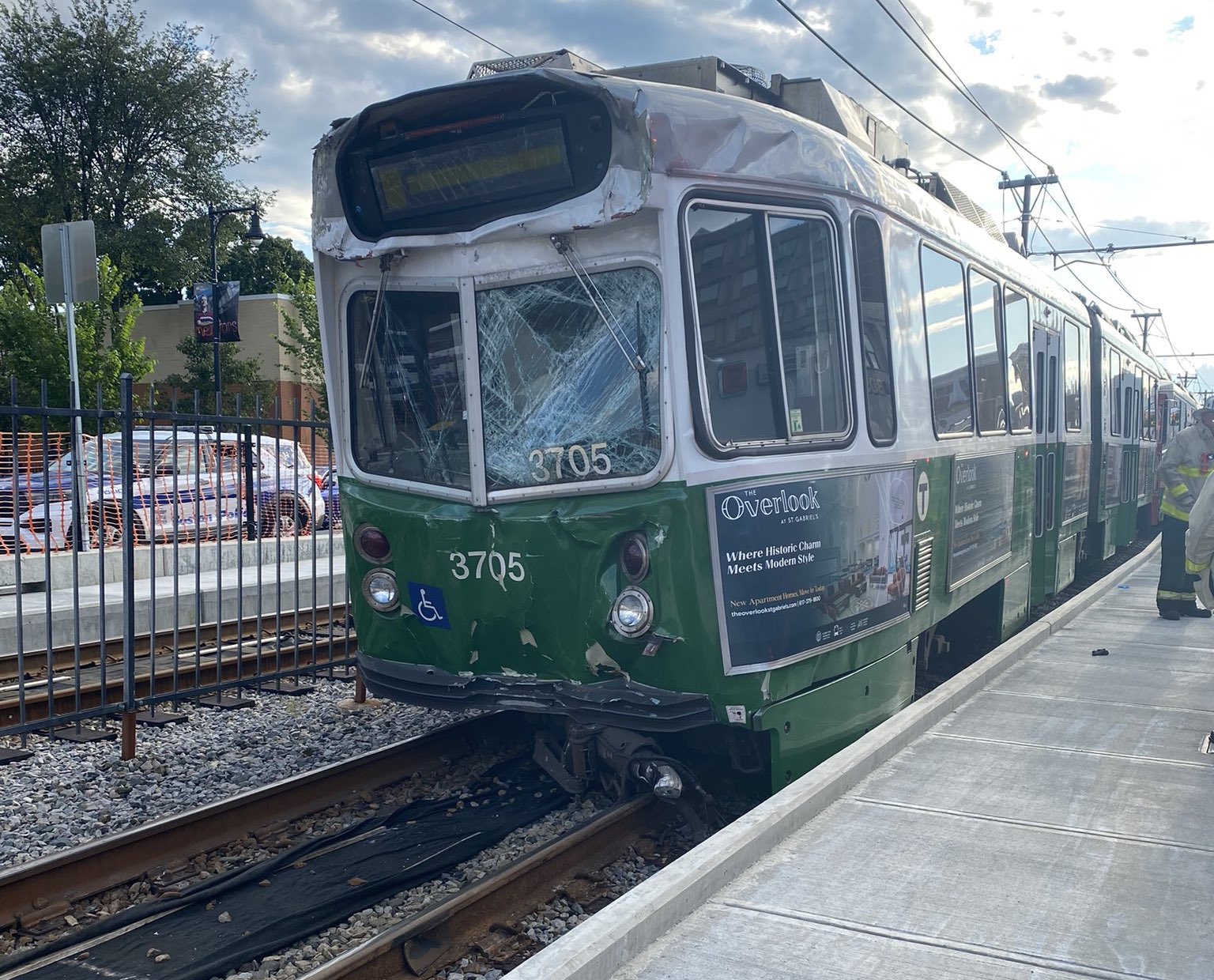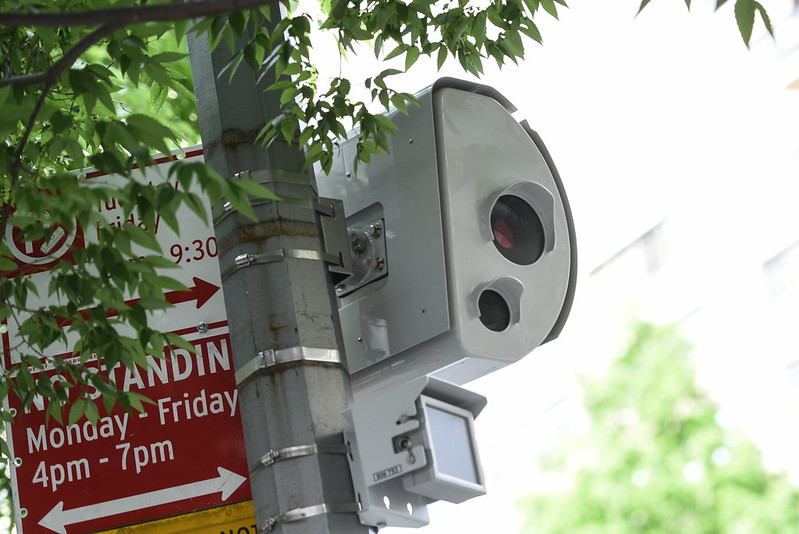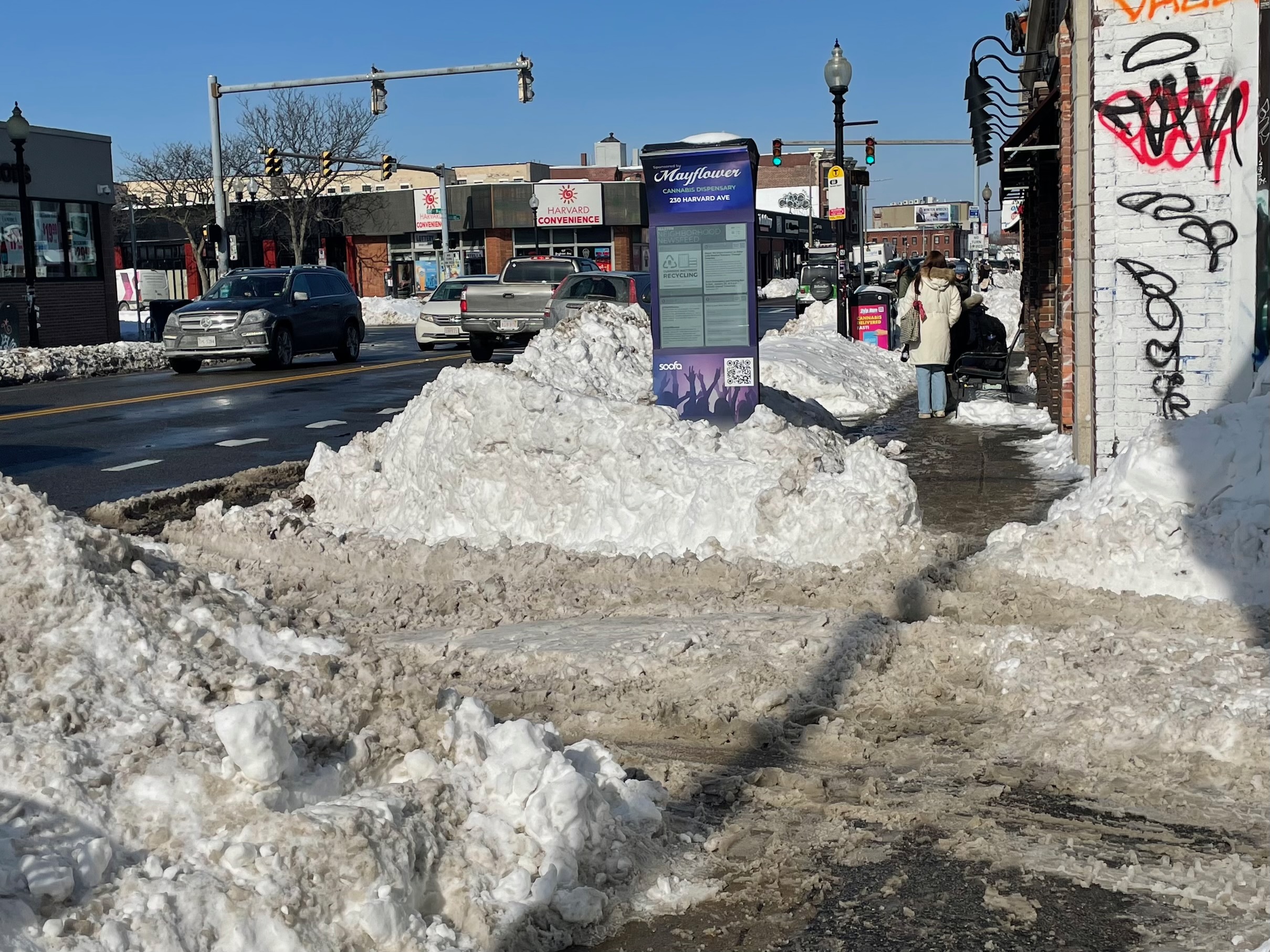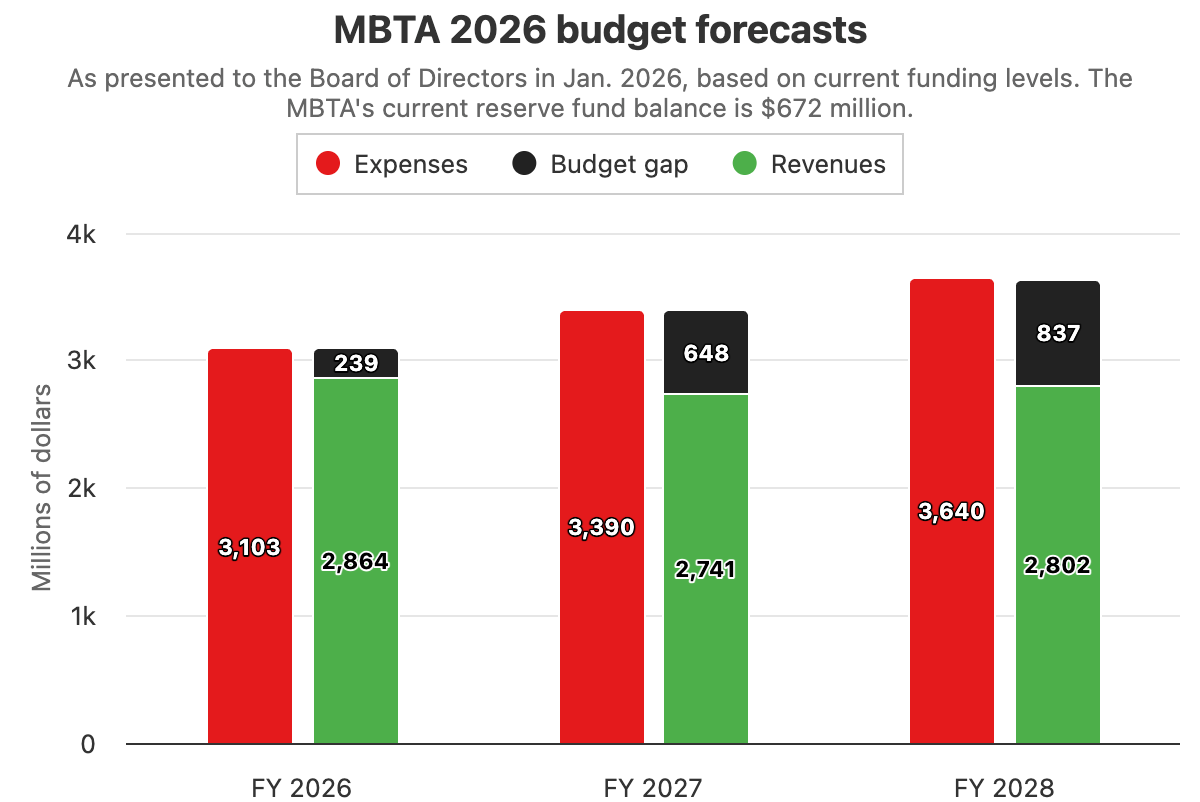On Friday, Senators Elizabeth Warren and Ed Markey subjected the leaders of the MBTA and its state safety oversight agency to withering questions about the agency’s problems with safety, transparency, and service quality.
The field hearing of the Senate Banking, Housing, and Urban Affairs Subcommittee on Economic Policy, which Senator Warren chairs, was held at the JFK Federal Building near Boston City Hall.
During the first of two panels, Nuria Fernandez, Administrator with the Federal Transit Administration (FTA), the agency that released a Safety Management Inspection report this summer listing several safety concerns at the T, clarified there will be no federal takeover of the MBTA.
Fernandez added that moving forward the FTA’s involvement “will be to continue providing that oversight to ensure both the MBTA and the DPU (Department of Public Utilities) complete all the corrective actions on the safety directives that were issued.”
The second panel began with MBTA’s General Manager Steve Poftak as the first of four witnesses.
Poftak stated his commitment to make the T a safer and more reliable transportation system, “We (T staff) acknowledge that safety incidents have occurred and that our service levels are not where we want them to be due to staffing challenges that have forced us to make difficult but appropriate decisions that prioritize safety above everything else.”
“Safety has been and continues to be our top priority, “ he added.
Senator Warren brought this commitment into question, citing the overlap between Poftak’s tenure at the T and the proliferation of safety issues.
“The problems we’re discussing here occurred on your watch,” Warren said to Poftak.
Senator Warren went on to quote a line from the FTA’s report.
“‘MBTA’s executive management’ – that’s you,” she read, looking up to Poftak, “– ‘does not consistently ensure its decisions related to safety risks are based on safety data or documented facts’ ... that is the bureaucratic way to say that your safety decisions are just made up,” said Senator Warren.
Of the 53 special directives listed in the August FTA report aimed to address service quality and safety, Poftak couldn’t say how many action items have been completed to date.
“I don't know the answer off the top of my head,” he said, before going on to explain how some of these items require more detail and completing them in a shorter period of time would mean they wouldn’t be done properly.
“I think moving chemicals to a safer place is not something that should take place over a long period of time. This is a real safety risk,” responded Senator Warren, referencing one of the action items involving inappropriate storage of chemicals in rail yards. “When are you going to have this done?”
“It truly varies,” answered Poftak, adding that while he didn’t have a specific number, some of the items would be done right away while others would take multiple years to complete.
The MBTA’s boss wasn’t the only one under the microscope.
Senator Warren also questioned Matthew Nelson, Chair of the Department of Public Utilities (DPU) – the state agency responsible for overseeing the T’s safety practices.
“It is your job to make sure that the MBTA is doing its job, and you are failing,” Senator Warren said to Nelson.
Nelson began working at the DPU in 2019, and in late 2020, the FTA shared a report with the agency listing problem areas at the T.
“What were you doing in those first two years? This is your job, to oversee the MBTA. Where were you?” asked Warren.
Nelson explained the hiring the department completed, including a new director and new assistant director to work in the rail safety unit.
Senator Warren referenced the most recent FTA report, highlighting that the safety problems at the T have remained through Nelson's tenure up until now and asked him again, “Where were you during that second two-year period?”
“It’s not that we weren’t taking any actions. I mean, the department took a number of normal enforcement actions,” responded Nelson.
“Well the FTA obviously thinks you not only didn’t take action, but you’re not even capable of taking action,” interjected Senator Warren.
Warren also called into question not only Nelson’s background, but that of the staff his department hired, Robert Hayden and Cecile Fraser, pointing out that not one of them has experience in the transportation field.
Sen. Markey, by contrast, focused his questioning on the T’s lack of transparency around service reliability, especially after slow travel speeds on the Orange Line have persisted for weeks after the T took the unprecedented step of shutting down the entire subway line for a month of repair work.
Senator Markey asked Poftak whether the T would publicly release a list of the work that still needs to be done to get the Orange Line up to full speed.
“Yes, we can do that,” answered Poftak.
Additionally, Poftak committed to releasing data on average trip times, something the public only has access to thanks to the work of TransitMatters, a local transportation advocacy non-profit.
The hearing’s last few minutes were dedicated to other topics of interest, including commuter rail electrification, the success of Bluebikes during the Orange Line shutdown, fare equity, and even service expansion.
Boston Mayor Michelle Wu, another witness on the panel, offered one of the closing thoughts, making reference to the importance of having “a clear vision, proactive, strong leadership, and the determination to get it done by prioritizing our communities, the riders and everyone who is impacted by this system.”
“That means not only funding safety and maintenance, and talking about why we can't do things or why we haven't, but really ensuring that we are pushing beyond that to the projects that need to get done… building the credibility and faith in the system by giving clear commitments on where we’re going to go and when we will get there,” said Mayor Wu.






